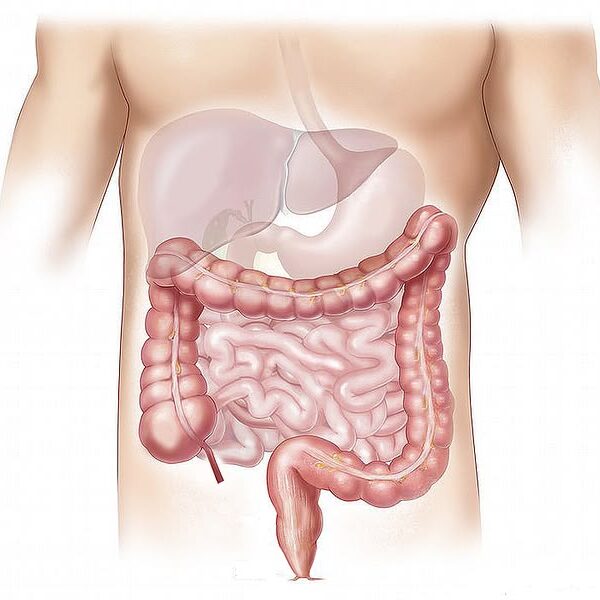Probiotics are small but mighty microorganisms that can significantly enhance your gut health. Your gut plays a vital role in digestion and absorbing nutrients. When you incorporate probiotics into your diet, you can improve digestion and the absorption of essential nutrients. These beneficial bacteria help break down complex food molecules, allowing your body to utilize more vitamins and minerals from the foods you eat.
Many people are unaware of the powerful impact probiotics can have on gut microbiota. A balanced gut environment fosters better digestive health, which can lead to overall well-being. Integrating probiotics through fermented foods or supplements allows you to support friendly bacteria that protect against harmful ones, especially during and after antibiotic use.
By understanding the role of probiotics, you can take steps toward a healthier gut and improve your nutrient absorption. In this article, we will explore the benefits of probiotics, how they affect digestion, and practical ways to include them in your diet.
Key Takeaways
- Probiotics can enhance digestion and nutrient absorption.
- A healthy gut microbiome supports overall health.
- You can introduce probiotics through foods or supplements.
Understanding Probiotics and the Gut Microbiota
Probiotics are live microorganisms that provide health benefits when consumed. They play a crucial role in balancing gut microbiota, impacting digestion and overall health. This section will clarify what probiotics are, how they interact with gut microorganisms, and their importance in digestive health.
Defining Probiotics and Their Role
Probiotics primarily consist of beneficial bacteria, such as Lactobacillus and Bifidobacterium. These microorganisms help maintain a healthy balance in your gut. They can support digestion and enhance the absorption of nutrients. Probiotics compete with harmful bacteria for space and resources, a process known as competitive exclusion. By doing so, they can prevent the growth of pathogens that might upset gut health. Regular intake of probiotics can support your immune system and improve digestive health outcomes.
Composition and Function of Gut Microbiota
The gut microbiota refers to the diverse community of microorganisms living in your intestines. This complex ecosystem includes bacteria, viruses, fungi, and other microbes. A balanced microbiota is essential for digestion and nutrient absorption. Beneficial bacteria, including lactic acid bacteria, produce substances that help break down food. They also aid in the production of vitamins and short-chain fatty acids, which support gut health. An imbalance in this microbiota can lead to digestive issues and other health problems.
Interaction Between Probiotics and Gut Microflora
Probiotics interact with your gut microflora in several ways. They can modulate the composition of gut microbiota, promoting the growth of beneficial bacteria while inhibiting harmful ones. Probiotics also help strengthen the gut barrier, reducing inflammation and improving gut integrity. This interplay is critical for maintaining a healthy microbiome. By supporting the beneficial bacteria in your gut, probiotics can enhance your overall health and wellbeing. Regular consumption of probiotic-rich foods or supplements can help achieve this balance.


Health Impacts of Probiotics
Probiotics have significant effects on your health, particularly in strengthening your immune system and preventing or treating various diseases. They can also help manage digestive disorders that affect many people today.
Boosting Immune System Function
Probiotics play a vital role in enhancing your immune system. They help by balancing the gut microbiome, which is crucial for maintaining immunity. A healthy gut prevents dysbiosis, where harmful bacteria thrive and can lead to infections.
Studies show that probiotics can increase the production of antibodies and stimulate immune cells like macrophages and T lymphocytes. These cells help target and destroy pathogens. Regular consumption of probiotics may reduce the duration and severity of illnesses, including colds and diarrhea.
Prevention and Treatment of Diseases
Probiotics have been linked to the prevention and management of various diseases. They are known to help with conditions like obesity, type 2 diabetes, and even certain cancers.
For example, probiotics can improve metabolic health and reduce inflammation related to insulin resistance. Additionally, they offer supportive care for diseases such as Ulcerative Colitis and Irritable Bowel Syndrome (IBS). The positive effects of probiotics include lowering the risk of gastrointestinal diseases and promoting better digestive health.
Probiotics in Digestive Disorders
Probiotics are especially beneficial for managing digestive disorders. They can help reduce symptoms of Diarrhea, IBS, and Inflammatory Bowel Disease (IBD).
In cases of diarrhea, probiotics can restore the balance of gut bacteria disrupted by illness or antibiotics. For IBS, they may alleviate symptoms like bloating and abdominal pain. Probiotics help decrease inflammation in individuals with IBD, such as Ulcerative Colitis, making them a valuable addition to your dietary regimen.
Incorporating probiotics into your diet can lead to improved digestive health. This includes naturally occurring sources like yogurt, kefir, and fermented vegetables, which all support your gut health effectively.
The Nutritional Aspect of Gut Health
Nutrition plays a vital role in gut health, impacting how your body absorbs nutrients. By focusing on the right foods and beneficial bacteria, you enhance digestion and optimize nutrient availability. Here are key areas that illustrate this relationship.
Enhancing Nutrient Absorption
Your gut microbiota directly affects nutrient absorption. Probiotics, which are live bacteria found in foods like yogurt, help break down complex carbohydrates. This process increases the bioavailability of essential vitamins and minerals.
Incorporating a diet rich in fiber from fruits, vegetables, and whole grains supports the growth of beneficial bacteria in your gut. These bacteria produce metabolites, such as short-chain fatty acids (SCFAs), that promote gut health and improve nutrient uptake.
Aim to include foods high in both probiotics and prebiotics to maximize absorption. Foods like garlic, onions, and bananas serve as food for good bacteria, enhancing your gut’s efficiency.
Probiotics and Metabolic Disorders
Probiotics have been linked to changes in metabolic health. They can moderate weight gain and improve blood sugar levels, which is vital for preventing metabolic disorders. These bacteria help create an environment in your gut that encourages nutrient breakdown and absorption.
Some studies suggest that probiotics may influence how your body metabolizes dietary fat and protein. This means they can play a role in how effectively your body uses these macronutrients.
Incorporating probiotic-rich foods or supplements can help manage these metabolic issues. By optimizing your gut health, you may reduce the risk of conditions like obesity and diabetes.
Influence on Dietary Fat and Protein Utilization
Dietary fat and protein utilization is also affected by your gut health. Probiotics assist in the digestion of these macronutrients, leading to better absorption. This is crucial since fats and proteins are essential for energy and cellular functions.
The presence of a diverse gut microbiome enhances the breakdown of fats. This means your body can make better use of healthy fats found in foods like avocados and nuts.
For protein, probiotics improve the synthesis of amino acids, which are necessary for muscle repair and growth. Incorporate high-quality protein sources along with probiotics to boost your overall nutrient absorption.


Advancements and Future Perspective
Recent developments in probiotics offer exciting opportunities for improving gut health. Focusing on research, product innovations, and emerging applications can enhance health benefits and expand the understanding of probiotics’ roles in your diet.
Clinical Research and Evidence-Based Health Claims
Recent studies have strengthened the evidence supporting probiotics’ health benefits. Research highlights their role in improving digestion, boosting nutrient absorption, and enhancing gut health. Many clinical trials have demonstrated that specific probiotic strains can alleviate digestive disorders like irritable bowel syndrome (IBS) and enhance immune function.
Evidence-based health claims are becoming more common. Probiotic supplements are now backed by rigorous research, providing a clearer link between gut health and overall wellness. As regulatory bodies assess these claims, the focus is on maintaining high standards for quality and efficacy.
Probiotic Supplements and Functional Foods
Probiotic supplements and functional foods like yogurt, kefir, and kimchi are increasingly popular choices for promoting gut health. These products contain beneficial bacteria that can help improve digestion and nutrient absorption.
Many manufacturers are now developing targeted probiotics designed for specific health benefits. For example, some strains aim to enhance cognitive performance, linking gut health to brain function. Fermented foods are also being recognized for their multiple health attributes, including potential anti-inflammatory effects.
Emerging Trends in Probiotic Applications
The field of probiotics is rapidly evolving. Emerging trends include personalized probiotics tailored to your individual gut microbiome. Scientists are exploring how different strains can meet unique health needs, paving the way for customized dietary approaches.
Innovations in delivery methods, such as capsules and functional beverages, are also gaining traction. This makes it easier for you to incorporate probiotics into your diet. Future research may unlock new applications, potentially linking gut health to mood regulation and other systemic benefits.
Consumer Considerations and Safety
When considering probiotics, it’s important to focus on selecting the right products, understanding safety issues, and integrating them with your diet and lifestyle. This ensures you make informed choices that best support your health.
Selecting the Right Probiotics
Choosing the right probiotic can be confusing. Look for products that specifically mention viable strains, such as Lactobacillus acidophilus or Lactobacillus casei. These strains have shown positive effects on digestion and immune function.
Check for CFUs (colony-forming units), which indicate the amount of live bacteria. A range of 1 billion to 10 billion CFUs is common. Additionally, read labels carefully for any added ingredients, like sugar or preservatives, that may not benefit your health.
You might also consider your individual health needs. For example, if you have lactose intolerance, certain probiotics can help you manage symptoms. Consult with a healthcare professional to find the best option for your specific situation.
Probiotic Safety and Regulatory Status
Probiotics are generally considered safe for healthy individuals. However, there are instances of severe infections, particularly in vulnerable populations like premature infants.
The U.S. Food and Drug Administration (FDA) does not regulate probiotics as strictly as medications. Therefore, it is essential to choose products from reputable brands. Look for third-party testing to ensure quality and safety.
It’s wise to stay aware of underlying health issues. If you have concerns about cardiovascular diseases or other medical conditions, first discuss probiotics with your healthcare provider. They can guide you on safe usage and potential interactions.
Integration with Diet and Lifestyle
Incorporating probiotics into your diet is straightforward. You can consume fermented foods like yogurt, kefir, sauerkraut, and kimchi. These foods contain live bacteria that promote gut health.
Consider combining probiotics with prebiotics, which are types of fiber that feed beneficial bacteria. Foods high in prebiotics include garlic, onions, and bananas.
Maintaining a balanced diet and healthy lifestyle supports your gut health. Regular exercise, adequate sleep, and stress management improve digestion and absorption of nutrients. By making small adjustments, you can enhance your wellness journey effectively.
Frequently Asked Questions
Understanding probiotics can help you make informed choices for your gut health. Here are some common questions about the benefits of probiotics and their role in digestion and nutrient absorption.
What are the key benefits of taking probiotics for gut health?
Probiotics support your digestive system and immune health. They help maintain a balance of good bacteria in your gut. This balance can improve digestion and may reduce gastrointestinal issues.
How do probiotics aid in digestion and help reduce bloating?
Probiotics help break down food and make nutrients easier to absorb. They also assist in managing gas production, which can lead to bloating. By improving digestion, they can create a more comfortable digestive experience.
What are the top probiotic foods recommended for improving gut health?
Some of the best probiotic foods include yogurt, kefir, sauerkraut, kimchi, and kombucha. These foods contain live cultures that provide beneficial bacteria. Incorporating these into your diet can enhance your gut health.
Which probiotic strains are most effective for enhancing nutrient absorption?
Lactobacillus and Bifidobacterium are two of the most studied probiotic strains. They are known to help break down complex carbohydrates and improve the absorption of vitamins and minerals. Choosing products with these strains can support better nutrient intake.
What does current research suggest about the impact of probiotics on gut health?
Research shows that probiotics play a positive role in gut health. They may reduce symptoms of digestive discomfort and lower the risk of certain gastrointestinal disorders. Continuing studies are exploring the full range of benefits attributed to probiotics.
Can introducing probiotics into your diet lead to adverse effects?
Most people tolerate probiotics well, but some may experience mild digestive upset. In rare cases, they can cause allergic reactions or infections. It’s best to start with small amounts and consult a healthcare provider if you have concerns.





